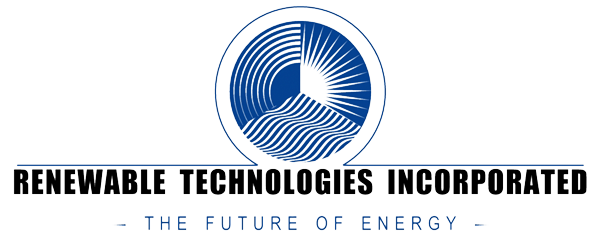It is no secret that the world is moving towards renewable energy sources. Solar power has become one of the most popular forms of renewable energy, thanks to its many benefits. In this article, we will discuss solar renewable power and why it is the future of the energy sector. We will also take a look at some of the other types of alternative energy out there and compare them to solar power. By the end of the article, you’ll have a grasp on why solar renewable power is the future of energy production as we know it!
Solar Renewable and Other Types of Alternative Energy
While there are many different kinds of renewable energy alternatives to fossil fuels that have been discovered, the world has been relatively slow to adapt the infrastructure for advancing the energy sector by investing in new industry. As of right now, the United States relies on only 12% of its energy from renewable energy sources.
However, as the need for solar renewable and other types of alternative energy intensifies, this reality is changing. There are many benefits to solar power, as we will detail in the following section—but it is not the only form of alternative energy. Other types of energy sources that are alternative to fossil fuels include:
- Hydropower, which relies on the movement of water on the planet in rivers and streams to harness mechanical energy.
- Geothermal, which harnesses the natural heat emitted from Earth’s iron core.
- Wind, which captures energy from the movement of air due to uneven heating of Earth’s surface due to varying levels of exposure to the sun.
- Biomass, which relies on energy harnessed from the sun by organic matter, such as trees and other plants, and animals. Even municipal solid waste, trash, and sewage can be a source of biogas, or renewable natural gas.
The Benefits of Solar Power
If you think about it, the sun has been the primary source of energy for life on our planet for billions of years. Whether solar radiation is used in the capacity to dry and preserve meat or is captured by a photovoltaic system, the sun has the ability to power water heaters, homes, and even cities. In 2021, solar energy accounted for nearly 14% of all renewable energy generation in the United States, and this number is growing as more and more people discover the benefits that come with making the switch. Some of these advantages include:
- Tax breaks, federal grants, and rebate programs: Whether or not you subscribe to the thinking that our planet is diseased and dying, most people can get behind any movement that offers them a financial incentive. When you invest in solar energy, you can apply for a slew of state-specific or federal reward programs that can ultimately end up saving you money during tax season for years to come.
- Saves space: Photovoltaic systems can be installed virtually anywhere, though a common place for them is on top of the roofs of buildings. This takes otherwise wasted space and transforms it into an asset, powering the building below. In terms of harnessing solar energy through the installation of fields of solar renewable cells, there can even be twofold benefit to crops for the savvy farmer who plants beneath her solar panels. Solar panels can provide shade for more delicate crops during some hours of the day, and can even help the soil retain moisture for longer, keeping the plants healthy.
- Less environmental impact and better for wildlife: Harnessing the sun’s energy requires absolutely no greenhouse emissions. This zero-carbon means of harnessing energy is not only better for our planet, but better for wildlife as well.
- Excess energy can be stored in battery setup: Sure, living in a sunny place means you are going to be likely to capture a higher amount of solar energy than if you live somewhere cloudy—and brighter, warmer months are bound to bring more power than colder, darker months. However, on those sunny days where you capture more energy than you know what to do with, your solar power can be stored by means of a special battery system, providing backup power for you during those cloudy days.
- Provides a potential for “off-the-grid” living: If you value your independence and autonomy, you may be charmed by the idea of “unplugging” from the system and sourcing your own means of power, food, and water. Solar panels can help everyone from rural farmers to urban city dwellers come one step closer to realizing this dream!
- Efficiency is ever-improving as the industry develops: Solar panels are not as efficient as some other forms of harnessing energy—but the science is constantly moving forward in the advancing field of solar renewable. Since the beginnings of what we recognize as modern solar power in the 1950s, the efficiency has come all the way from offering a meager 1-watt capacity to powering planes, automobiles, and NASA’s satellites!
- Different models of energy capture than when it was invented: We’ve come a long way since the selenium-based photoconductive solar panels from the 1800s. Nowadays with our silicon-based solar panels, we even have an assortment of different aesthetic choices to choose from, including flexible or printed panels, solar shingles, and more!
- Unused energy can be sold back to the power company in certain situations: Got more energy than you know what to do with? You can usually sell your solar energy to your local power company to be sent to someone else’s home. This means you will not only be receiving a tax break or other carbon-offset reward, but may even turn a profit after the panels are paid off!
- It invests in renewable infrastructure and job creation: Many people worry that with the bowing out of fossil fuels, we will lose valuable jobs and industries. In truth, there is no precedent for creating a new infrastructure of renewable energy development—so it will involve everyone’s participation and willingness to learn new skills. By investing in solar energy, you are investing not only in the welfare of the planet, but in job creation for your fellow Americans.
- Return on Investment (ROI): While some people balk at the initial cost of installation for solar panels, when they discover that they are not only likely to be able to not only receive government-backed rewards through tax breaks or other financial incentives, but they will likely even be able to sell excess energy to their local power company when they have an abundance of solar renewable power. Additionally, after the completion of your payment plan for your solar panel installation, you will see a ROI of about 20% in your first year…and you will have increased the value of your house should you ever decide to sell.
Solar Renewable Energy Installation Near Me
Solar power isn’t the only source of renewable energy out there, but it is among the fastest developing form of alternative energy. As our understanding of photovoltaics deepens and our solar panels become more and more efficient, solar power experts can begin to promise higher and higher ROIs as the costs for installation continues to drop, thanks to increased interest. With so many reasons to consider making the switch to solar, what are you waiting for? This move will not only save you money in the long run, but will add value to your living quarters while investing in a brighter future for mankind!
Want to know more about how solar power works? Check out our recent article on the topic! Or, contact Renewable Technologies today for a quote!

